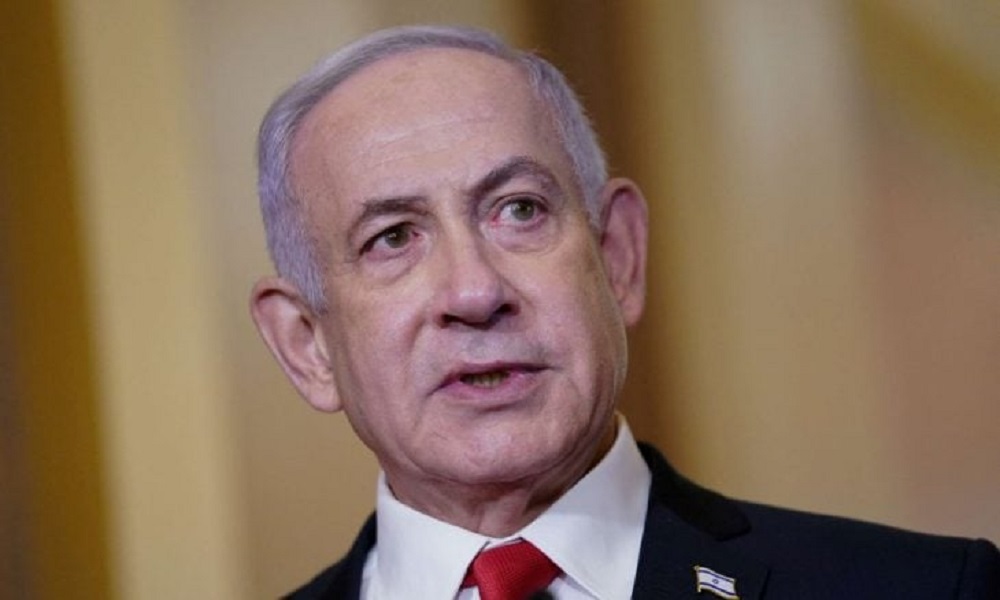Watan-Multiple Israeli analyses have described the meeting between U.S. President Donald Trump and Israeli Prime Minister Benjamin Netanyahu as Netanyahu’s worst and most humiliating, especially regarding the Iran file, with Netanyahu returning empty-handed and unable to influence Trump.
In Maariv, political affairs correspondent Anna Barsky wrote that Trump embarrassed Netanyahu during a live broadcast, and what Netanyahu had hoped to achieve from the visit collapsed in reality. However, she noted that Netanyahu would likely not take long to spin what happened, either by framing it as a success or downplaying it. Still, the initial and core impression left by Trump’s remarks can’t be easily dismissed and could be summed up in a single word: “surprise”, or in three words: “a surprise approaching humiliation.”
Barsky noted that although the official purpose of Netanyahu’s quick trip to the White House was to convince Trump to reduce the customs tariffs imposed on Israel, it turned out that the real issue was Washington’s direct negotiations with Tehran. “The fact that the U.S. president still believes in diplomacy with Iran deeply concerns Netanyahu,” she wrote, “especially since he has failed to convince Trump that diplomacy only buys Iran time and maneuvering space.”

Netanyahu Blindsided at the White House
She added that Trump’s statements indicate that he wasn’t persuaded by Netanyahu’s arguments during their meeting—even before they appeared together on the live broadcast—and that Trump had prepared a surprise for the Israeli guest, who had wanted to be a model for other nations seeking tariff relief. But all of Netanyahu’s expectations, and the briefings given by Israeli officials to reporters claiming a quick win and tariff relief—perhaps even full cancellation—were crushed in practice.
On his part, Yedioth Ahronoth journalist Nadav Eyal described the scene: “At a certain moment in the Oval Office last night, Netanyahu swallowed hard, glanced quickly right and left, his eyes darting, his face grimaced, and he lowered his head. That was when President Trump announced that the U.S. was engaged in direct talks with Iran.”
Eyal explained that Netanyahu wasn’t the only one surprised by Trump’s public disclosure—some Americans themselves didn’t know Trump was going to reveal the talks during Netanyahu’s visit. Even the Israeli delegation had no idea the negotiations would be made public, presidential, and central—right in the Oval Office, with Netanyahu present. According to Eyal, Israelis are finding comfort only in one small achievement from the meeting: Trump’s clear threat to Iran that failure in negotiations would put it in “serious danger.”
According to Walla! journalist Barak Ravid, Netanyahu returned from the White House empty-handed, and with the shock of public U.S.-Iran talks unfolding. Ravid said this may have been Netanyahu’s worst meeting ever with Trump, finding himself in a scenario he never anticipated.
A Visit Without Victory
Ravid described the moment as a baseball game where Trump kept throwing political, security, and economic curveballs critical to Israel—and Netanyahu kept missing. He wrote that Netanyahu sat in front of the cameras, smiling while quietly absorbing blow after blow—a moment he saw as both embarrassing and even humiliating, reflecting Netanyahu’s political weakness and inability to influence Trump’s policies, as well as his total dependence on the U.S. president.
Ravid added that Netanyahu had hoped to return from Washington with at least a customs relief deal, but instead, Trump reminded everyone on camera that Israel already receives $4 million worth of military aid. Ravid noted that during the meeting, Netanyahu also expressed deep concerns over Turkey’s activities in Syria, asking Trump to pressure Turkish President Recep Tayyip Erdoğan—but even there, Netanyahu failed to influence the U.S. stance. Instead, Trump publicly praised Erdoğan and said: “If you have a problem with Turkey, I can solve it—as long as you behave reasonably. You need to behave reasonably.”
Ravid concluded that, even after the meeting, the true objective of Netanyahu’s visit remained unclear, signaling what he called a complete diplomatic failure for Israel—unless further clarifying details emerge in the coming days.
-
-
-
-
-
-
